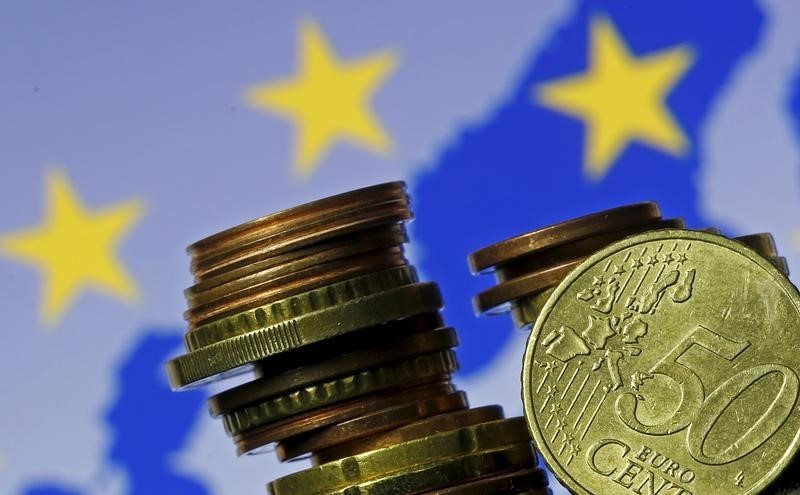By Jonathan Cable
LONDON, April 5 (Reuters) - Euro zone business growth edged up last month from February's 13-month low as demand weakened, particularly for services, despite deep price cuts, a survey showed on Tuesday.
The Purchasing Managers Index will make disappointing reading for European Central Bank policymakers, coming just weeks after they eased policy on a wide front in their latest attempt to spur growth and inflation.
But Markit's final composite PMI for the bloc, seen as a good guide to growth, suggested the stimulus had not yet had much effect. At 53.1, the index barely improved on February's 53.0. That was above the 50-mark that divides growth from contraction but down from an earlier flash estimate of 53.7.
"The euro zone economy failed to show any significant gain in momentum in March. With the PMI barely rising from February's 13-month low, the region looks to have grown by just 0.3 percent again in the first quarter," said Chris Williamson, Markit's chief economist.
A Reuters poll in March predicted the economy expanded 0.4 percent last quarter.
More worryingly for policymakers, companies cut prices again last month. The output price index nudged up to 48.6 from February's 12-month low of 48.5.
The ECB would like inflation just below 2 percent, but flash data showed last week it was -0.1 percent in March. Meanwhile, producer prices fell more than expected in February and the pace of their monthly decline increased, excluding volatile energy prices.
Price cutting failed to stem a slide in the PMI for the bloc's dominant service industries. The index fell to a 14-month low of 53.1 from 53.3, a decline from the flash 54.0 estimate.
New business growth also decelerated, and the sub-index fell to a 14-month low of 52.7 from February's 53.4.
"Sluggish growth is the result of lackluster demand, accompanied by falling prices as firms compete at the expense of profit margins. Not surprisingly, hiring is coming under increased pressure as firms struggle to contain costs," Williamson said.
Unemployment in the euro zone was 10.3 percent in February, just down from an upward revised 10.4 percent in January, official data showed on Monday.
